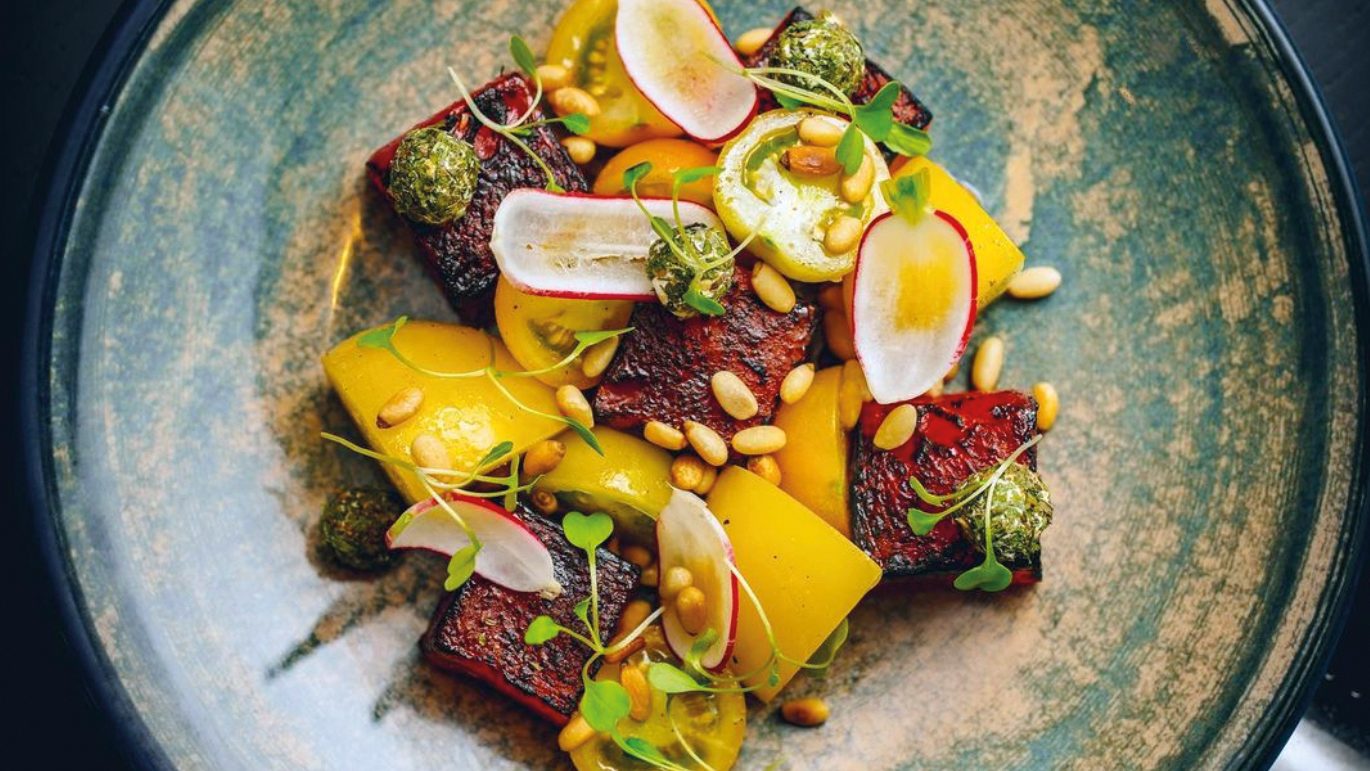Disappointingly, I have never been to Turkey. Soon I’ll need to because it’s the place to go for anyone in the market for an affordable hair transplant, something very much on the personal horizon.
Five days in Greece this month proved I either need more hair, or accept I can never again remove my hat in the sun. A burnt head is dispiriting and no amount of hummus alleviates the fact.
I also want to visit Turkey for the food. For now, the next best thing is a visit to Green Lanes in north London. There, Turkish and Turkish-Cypriot cooking are the vanguard, and ocakbasi – monolithic charcoal grills, pronounced ojak-bashur – the eminent culture. There is no end of skewers piercing generously marinated chicken, lamb; salads are generous, bread pillowy.
My favourite of all the restaurants on Green Lanes is Umut 2000. It is wise to order some sort of combination, perhaps one that includes an adana kebab, where minced lamb meat is studded by spice and blessed by depth. Soon after ordering, a man with a moustache will bring you a seemingly endless parade of salads, each dressed in olive oil, lemon, and parsley. One might be the ezme; very finely chopped tomatoes, onions, and green peppers, all flavoured with sumac, and it is delicious. Aubergines, meanwhile, are silken; herb yoghurt is blanketed by chilli. The bread is not only soft but charmed by hot meaty fat, which is rubbed on at the grill.
Umut 2000 feels old and traditional. It isn’t glitzy but so many of the Turkish restaurants in London are – they are adorned by low-hanging, fuzzy bulbs of orange light, plush with purple banquettes and vajazzled with chrome and gold. I love Umut but I also appreciate the other side of London’s Turkish dining. Journey south and such haughty warmth goes further. Ruya, in Mayfair, is a playground of Anatolian excess.
At Ruya, there is a salad comprising burnt watermelon, tomato and cheese, and it is refreshing. Za’atar covers balls of sticky labneh, pine nuts fall willingly onto tomatoes and watermelon juices the whole thing up.
BURNT WATERMELON SALAD
INGREDIENTS:
350g mixed heritage tomatoes, to include as many different varieties as possible
300g red and golden watermelon
50g natural labneh balls or a good quality feta cheese 10g dry za’atar mix to coat the labneh balls
10g pine nuts roasted
5g sliced radish
60g olive oil
½ fresh lemon juice
Seasonal cresses or small baby leaves
Sea salt
Freshly cracked black pepper
Compression liquids (if you have a vac-pac machine):
50g Table salt
50g Lemon juice
50g Caster sugar
METHOD:
Remove tomatoes from the fridge so they reach room temperature.
Take your red and golden watermelon and remove the skin and roughly cut into 3 cm cubes – remove as many of the seeds as you can with a small knife and set aside.
If you have a vacuum packing machine, then take the compression liquids and lightly heat to dissolve the sugar and salt, remove and chill.
Add the liquids and the watermelon to a vac-pac bag and seal and leave for 20 minutes, remove, and drain on kitchen paper to remove any excess liquid. If you don’t have a vac-pac machine then cut the watermelon into cubes and place in a zip-lock bag, making sure the watermelon cubes lay flat and close to each other. Remove as much air as possible and seal it.
Place the bag flat in the freezer with something heavy on top to weigh it down. Leave in the freezer for 3 hours. Remove and allow to thaw slightly before the next stage.
Place your watermelon on a wire rack and with a blow torch lightly burn the edges – this will help release the natural sugars and give a slight charred flavour to the melon.
Take your tomatoes and cut into bite-sized pieces.
Take your labneh balls and lightly cover with the za’atar mix. If you are using feta, then crumble loosely into a bowl and keep in the fridge until needed (keep the za’atar separate).
Roast your pine nuts until nicely coloured.
Take your small radishes and with a peeler, peel into thin slices and chill in iced water.
Take your watermelon and place in a bowl and lightly season with salt.
Place the watermelon on to your serving plates or bowls.
In a separate bowl, take the tomatoes and add nearly all of the olive oil keeping a tiny glug to one side – add the fresh lemon juice and season well with the sea salt and black pepper, making sure that the tomatoes are well coated.
Arrange the tomatoes around the watermelon and add the labneh balls or feta. Sprinkle with a little of the za’atar, finish with a drizzle of olive oil, add the sliced radish and a crack of black pepper and a scattering of the baby leaves or cresses




